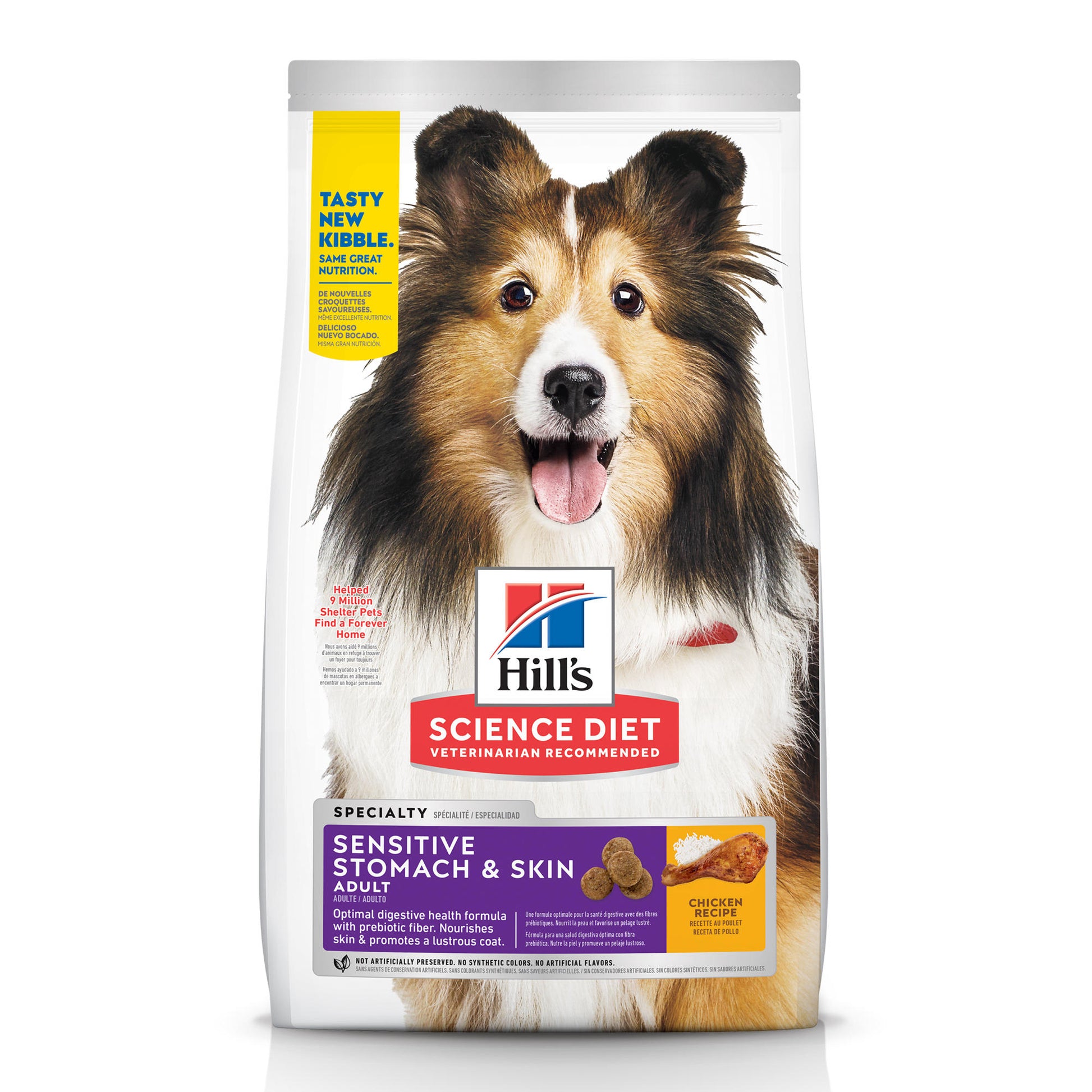Prescription Diet dog food is specially formulated to address specific health issues in dogs. It is recommended by veterinarians to support overall well-being.
Choosing the right dog food is crucial for your pet’s health. Prescription Diet dog food offers tailored nutrition for various medical conditions, such as kidney disease, obesity, and food allergies. These diets contain specific ingredients to promote healing and improve quality of life.
Each formula is designed to meet the unique needs of dogs, ensuring they receive essential nutrients while managing health issues. Many pet owners find that these specialized diets help their dogs feel better and live longer. Understanding the benefits and importance of prescription diets can guide you in making the best choice for your furry friend’s dietary needs.
Table of Contents
ToggleIntroduction To Prescription Diet Dog Food
Prescription diet dog food is specially designed for dogs with health issues. These diets provide tailored nutrition to support their specific needs. Many pet owners turn to these diets to improve their furry friends' well-being. Understanding the benefits of prescription diets is essential for every dog owner.
The Role Of Tailored Nutrition
Tailored nutrition plays a crucial role in a dog's health. Each prescription diet addresses specific health concerns. This customized approach ensures your dog receives the right nutrients. Here are some benefits of tailored nutrition:
- Improved health: Helps manage chronic conditions.
- Weight management: Controls calorie intake effectively.
- Enhanced digestion: Supports gut health with special ingredients.
- Boosted immunity: Strengthens the immune system with vital nutrients.
Common Health Issues Addressed
Prescription diets target various health problems in dogs. Here are some common issues and their solutions:
| Health Issue | Prescription Diet Solution |
|---|---|
| Obesity | Low-calorie formula to aid weight loss. |
| Kidney disease | Low protein and phosphorus diets. |
| Allergies | Limited ingredient diets to reduce reactions. |
| Joint problems | Formulas rich in omega-3 fatty acids. |
Choosing the right prescription diet can significantly improve your dog's health. Consult your veterinarian for the best options for your furry friend.

Assessing Your Dog's Dietary Needs
Understanding your dog's dietary needs is crucial. A proper diet can improve health and happiness. Prescription diet dog food is designed for specific health issues. Recognizing signs that your dog may need a special diet is the first step.
Signs Your Dog May Benefit
Watch for these signs that your dog may need a prescription diet:
- Weight issues: Overweight or underweight dogs may need special food.
- Skin problems: Frequent itching or skin infections can indicate dietary issues.
- Digestive troubles: Vomiting, diarrhea, or gas may signal food sensitivities.
- Joint pain: Arthritis or mobility issues can improve with the right diet.
- Dental issues: Poor oral health can benefit from specific nutrients.
Working With A Veterinarian
Consulting a veterinarian is essential. They can assess your dog's condition. Here are some steps to follow:
- Schedule an appointment for a health check.
- Discuss any signs or symptoms you've noticed.
- Ask about specific prescription diets suitable for your dog.
- Follow the vet's recommendations for feeding and monitoring.
Regular check-ups are vital for ongoing health. Keep an eye on your dog’s response to the new diet.
Key Ingredients In Prescription Diets
Prescription diet dog food contains special ingredients. These ingredients help manage specific health issues. Understanding these key components is essential for your dog's well-being.
Specialized Proteins And Carbohydrates
Prescription diets often feature unique proteins. These proteins are easy to digest. They help reduce allergies and promote recovery. Common specialized proteins include:
- Chicken
- Fish
- Eggs
Carbohydrates in these diets also play a crucial role. They provide energy without causing digestive upset. Common carbohydrate sources include:
- Brown rice
- Sweet potatoes
- Peas
These ingredients ensure balanced nutrition. They support overall health and aid in weight management.
Vitamins And Supplements For Health
Vitamins and supplements enhance the benefits of prescription diets. They support immune function and overall well-being. Key vitamins found in these foods include:
| Vitamin | Function |
|---|---|
| Vitamin A | Supports vision and skin health |
| Vitamin D | Regulates calcium and phosphorus |
| Vitamin E | Acts as an antioxidant |
Other beneficial supplements may include:
- Omega-3 fatty acids
- Glucosamine
- Probiotics
These ingredients help maintain joint health and improve digestion. They support your dog's quality of life.
Types Of Prescription Dog Foods
Prescription dog foods cater to specific health needs. These diets help manage various medical conditions. Choosing the right type is crucial for your dog's health.
Weight Management Formulas
Weight management formulas help dogs maintain a healthy weight. Obesity can lead to serious health issues. These foods are lower in calories and fat.
- High in fiber to promote fullness
- Rich in protein to maintain muscle mass
- Balanced nutrients to support overall health
Look for key ingredients in these formulas:
| Ingredient | Benefit |
|---|---|
| Fiber | Promotes digestion and satiety |
| Lean Proteins | Supports muscle health |
| Omega Fatty Acids | Boosts skin and coat health |
Renal Support Diets
Renal support diets are designed for dogs with kidney issues. These foods help reduce the workload on the kidneys. They contain lower protein and phosphorus levels.
- Controlled protein to minimize kidney strain
- Increased omega-3 fatty acids for kidney health
- Added antioxidants to support overall well-being
Key features of renal support diets include:
| Feature | Purpose |
|---|---|
| Lower Phosphorus | Reduces kidney stress |
| High in Omega-3s | Supports kidney function |
| Antioxidants | Helps combat oxidative stress |
Transitioning To A Prescription Diet
Changing your dog's food can be a big step. A prescription diet helps manage health issues. Proper transitioning is vital for your dog's comfort and health. Here’s how to do it safely.
Introducing New Food Safely
Start with a gradual change. Mix the new food with the old food. Follow this plan:
- Days 1-2: 25% new food, 75% old food
- Days 3-4: 50% new food, 50% old food
- Days 5-6: 75% new food, 25% old food
- Day 7: 100% new food
This method helps avoid stomach upset. Make sure to watch your dog's reactions. Choose a high-quality prescription diet. Consult your vet for recommendations.
Monitoring Your Dog's Response
Keep an eye on your dog’s behavior. Look for signs of adjustment:
- Improved energy levels
- Healthy coat condition
- Normal bowel movements
If you notice any issues, contact your vet. Here are some common reactions to watch for:
| Reaction | Action |
|---|---|
| Vomiting | Stop the new food. Consult your vet. |
| Diarrhea | Slow down the transition. Mix more old food. |
| Refusal to eat | Try warming the food. Ensure it's fresh. |
Stay patient during this process. Each dog adjusts differently. Ensure your furry friend feels comfortable and happy.
Success Stories And Testimonials
Many pet owners share their experiences with Prescription Diet Dog Food. These stories highlight the positive changes in their dogs' health and happiness. Let's explore some real-life transformations and insights from veterinarians.
Real-life Transformations
Here are some incredible success stories from dog owners:
- Bella: A 5-year-old Labrador lost 15 pounds. She gained energy and enjoys walks again.
- Max: A rescue dog with skin issues saw improvements in just two weeks. His coat became shiny and healthy.
- Lucy: A senior Beagle had a better appetite and less joint pain. She now plays with her toys again.
| Dog's Name | Before Diet | After Diet |
|---|---|---|
| Bella | Overweight, low energy | Healthy weight, active |
| Max | Skin issues, dull coat | Shiny coat, improved skin |
| Lucy | Painful joints, low appetite | Less pain, playful |
Take advice from Pet Expert Dr Marty
ESA Pet is an online service that helps you get a legitimate ESA letter
Pet vitamin supplements and grooming products
Veterinarians' Perspectives
Veterinarians endorse Prescription Diet Dog Food for many reasons:
- Formulated for specific health needs.
- Promotes weight management.
- Supports skin and coat health.
- Enhances overall well-being.
Dr. Smith, a local veterinarian, says:
“I see remarkable changes in dogs on these diets. They thrive and feel happier.”
Another vet, Dr. Johnson, adds:
“Prescription diets can turn around health issues effectively. They truly make a difference.”
These testimonials and expert opinions show the benefits of Prescription Diet Dog Food. Dogs can enjoy healthier, happier lives.
Addressing The Myths And Misconceptions
Many dog owners have questions about prescription diet dog food. Misunderstandings often arise, leading to confusion. Let’s clarify some common myths.
Prescription Diets Vs. Regular Food
Some believe prescription diets are no different from regular dog food. This is a misconception. Here are key differences:
| Aspect | Prescription Diets | Regular Dog Food |
|---|---|---|
| Formulation | Tailored for specific health issues | General nutrition |
| Ingredients | High-quality, specialized | Varies widely |
| Availability | Requires a vet prescription | Widely available |
Prescription diets often target specific conditions. These include:
- Kidney disease
- Allergies
- Obesity
Regular food may not meet these needs. Always consult a vet for your dog's health concerns.
The Cost-effectiveness Debate
Many worry about the cost of prescription dog food. This is valid but requires perspective. Consider these factors:
- Health Benefits: Prescription diets can improve overall health.
- Long-term Savings: Healthier dogs may need fewer vet visits.
- Specialized Ingredients: Quality ingredients often lead to better health outcomes.
Think about the long-term investment in your dog's health. A healthier pet can save money on treatments.
Always evaluate your dog's specific needs. Choose the best food for their health.
Maintaining Your Dog's Health Long-term
Maintaining your dog's health is crucial for their happiness. A good diet plays a major role. Prescription diet dog food offers specialized nutrition tailored to health needs. Regular care and lifestyle choices also contribute to long-lasting health.
Regular Check-ups And Diet Reviews
Routine check-ups are essential. They help catch health issues early. Vets can assess your dog's weight, coat, and energy levels.
- Schedule vet visits every 6-12 months.
- Discuss any dietary changes during visits.
- Update vaccinations and preventive care.
Review your dog’s diet regularly. Changes in age or health may require adjustments. Prescription diets may need alterations as your dog grows.
| Age Range | Diet Considerations |
|---|---|
| Puppies | High energy and protein needs |
| Adults | Balanced nutrition for maintenance |
| Senior Dogs | Lower calories, joint support |
Lifestyle Factors That Complement Diet
Diet alone won't keep your dog healthy. Lifestyle factors play a vital role.
- Regular exercise is important. Aim for daily walks.
- Mental stimulation keeps your dog sharp. Use toys and puzzles.
- Socialization helps with behavior. Arrange playdates or dog parks.
Monitor your dog's weight. Overweight dogs face health risks. Adjust food portions if necessary.
Provide fresh water at all times. Hydration supports overall health.
Creating a healthy routine leads to a happy dog. Focus on both diet and lifestyle.
Conclusion: A Tailored Approach To Wellness
Choosing the right diet for your dog is crucial. Prescription diet dog food offers a focused solution for specific health needs. This approach supports overall wellness and enhances your pet's quality of life.
The Importance Of A Balanced Diet
A balanced diet plays a vital role in your dog's health. It helps maintain a healthy weight and supports vital functions. Here are key benefits of a balanced diet:
- Boosts immune system
- Promotes healthy skin and coat
- Supports digestive health
- Enhances energy levels
Prescription diets are designed to provide the right nutrients. They target specific health issues like:
| Health Issue | Prescription Diet Type |
|---|---|
| Weight Management | Low-Calorie Formulas |
| Kidney Health | Low-Protein Diets |
| Allergies | Limited Ingredient Diets |
| Joint Health | Joint Support Formulas |
Continued Research And Advancements
Veterinary nutrition is evolving rapidly. Ongoing research ensures the best nutrition for dogs. Innovations in prescription diets focus on:
- Targeted nutrients for specific conditions
- Improved flavors and textures
- Enhanced digestibility
- Customizable options for unique needs
These advancements aim to offer better health solutions. They help maintain your dog’s vitality and happiness.


Frequently Asked Questions On Prescription Diet Dog Food
What Is Prescription Diet Dog Food?
Prescription diet dog food is specially formulated to address specific health issues in dogs. These diets are often recommended by veterinarians for conditions like obesity, kidney disease, or allergies. They contain controlled ingredients to help manage these health problems effectively while ensuring nutritional balance.
Who Needs Prescription Diet Dog Food?
Dogs with specific medical conditions often require prescription diet dog food. Pets suffering from obesity, diabetes, or gastrointestinal issues may benefit the most. Consulting a veterinarian is crucial to determine if your dog needs a specialized diet for better health management.
How To Choose The Right Prescription Dog Food?
Choosing the right prescription dog food involves understanding your dog's health needs. Consult your veterinarian for tailored recommendations based on your dog's condition. Look for foods that meet the specific dietary requirements outlined by your vet for optimal health results.
Can I Buy Prescription Diet Dog Food Online?
Yes, you can buy prescription diet dog food online. However, a veterinarian's approval is usually required for purchase. Many online pet pharmacies offer convenient access, but ensure you have the necessary prescriptions to ensure the food is appropriate for your dog’s health needs.
Conclusion
Choosing the right prescription diet dog food is essential for your pet’s health. Tailored nutrition can address specific medical needs effectively. Always consult your veterinarian before making dietary changes. By prioritizing your dog's unique requirements, you ensure a happier, healthier life for your furry friend.
Invest in their well-being today.














